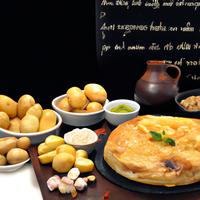
1 serving (150 grams) contains 350 calories, 8.0 grams of protein, 18.0 grams of fat, and 40.0 grams of carbohydrates.

Log this food in SnapCalorie

Nutrition Information
Calories |
552.1 | ||
|---|---|---|---|
% Daily Value* |
|||
| Total Fat | 28.4 g | 36% | |
| Saturated Fat | 12.6 g | 63% | |
| Polyunsaturated Fat | 0 g | ||
| Cholesterol | 47.3 mg | 15% | |
| Sodium | 709.8 mg | 30% | |
| Total Carbohydrates | 63.1 g | 22% | |
| Dietary Fiber | 3.2 g | 11% | |
| Sugars | 7.9 g | ||
| protein | 12.6 g | 25% | |
| Vitamin D | 0 mcg | 0% | |
| Calcium | 126.2 mg | 9% | |
| Iron | 3.2 mg | 17% | |
| Potassium | 315.5 mg | 6% | |
* Percent Daily Values are based on a 2,000 calorie diet. Your daily values may be higher or lower depending on your calorie needs.
Food Attributes
Source of Calories
About Portugese pie
Portuguese Pie is a savory dish rooted in Portuguese cuisine, reflecting the country's rich culinary heritage. Typically, this pie features layers of seasoned ground meat, such as beef or pork, combined with sautéed onions, garlic, and spices like paprika for a robust flavor profile. Often, it includes additional ingredients like vegetables, hard-boiled eggs, and olives, encased in flaky pastry or topped with mashed potatoes. While the protein and vegetable components offer nutritional benefits like essential vitamins and minerals, the pastry or creamy potato topping can be calorie-dense and high in carbohydrates and fats. Variations may adjust for lighter options, including leaner meats and less butter in crust preparation. Portuguese Pie is a hearty comfort food, ideal for gatherings, embodying the balance of bold flavors and rich textures typical of Portugal's culinary tradition. Moderation is key to enjoying its satisfying richness without overindulging in less nutrient-dense elements.



